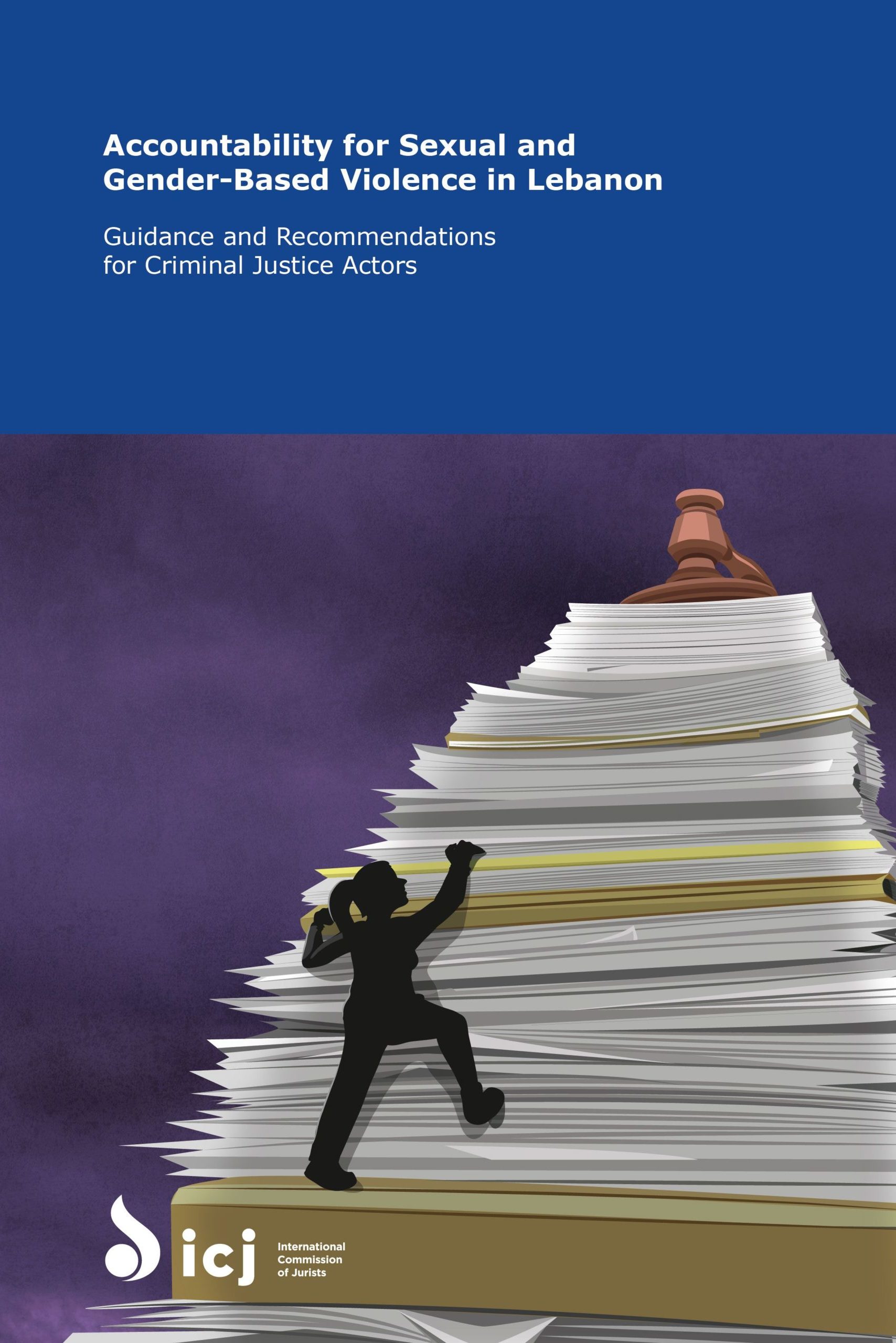In a publication released today, the ICJ called on the Lebanese authorities to remove obstacles and eradicate harmful practices in the administration of justice impeding the realization of women’s and girls’ access to justice for sexual and gender-based violence (SGBV).
This includes ensuring the rights of victims to an effective remedy and reparation, and by combatting the prevailing impunity in the country for such offences.
The report Accountability for Sexual and Gender-Based Violence in Lebanon: Guidance and Recommendations for Criminal Justice Actors (available in English and Arabic) concludes that legislative and procedural gaps within the Lebanese framework for the investigation, prosecution and adjudication of SGBV offences foster and perpetuate a systematic denial of effective legal protection and access to justice and effective remedies for women and girl victims of SGBV.
Moreover, the inadequacy of criminal justice responses to SGBV victims has been compounded by the 2020 Coronavirus pandemic, with studies finding that SGBV has surged amid government-imposed confinement measures.
Recalling the recommendations issued in its July 2019 report, Gender-based Violence in Lebanon: Inadequate Framework, Ineffective Remedies – which called on the Lebanese authorities to fully criminalize and sanction violations of women’s human rights, including by repealing and amending provisions that discriminate against women – the present memorandum aims to furnish Lebanon’s criminal justice system actors with guidance and recommendations to maximize the effectiveness of the investigation, prosecution and adjudication of SGBV cases, until the authorities adopt comprehensive legislative amendments and necessary protocols.
While efforts by the Lebanese authorities to combat SGBV are laudable, they have been piecemeal, and major obstacles continue to result in access to justice failings.
In their present form, existing laws and policies are inadequate and ineffective, and fail to sufficiently address the complexities and multiple facets of the SGBV phenomenon, ultimately entrenching impunity for SGBV offences.
“Delivering justice to victims/survivors of SGBV in a meaningful way involves not only developing a legal framework that robustly protects women’s human rights, but also ensuring effective policies and practices in the administration of justice,” said Said Benarbia, Director of the ICJ’s Middle East and North Africa Programme.
“The Lebanese authorities should overhaul the legal framework and procedures governing criminal justice responses to SGBV with a view to adopting timely protective measures for all SGBV victims without discrimination, and to making clear, gender-sensitive guidelines and protocols available to criminal justice actors and healthcare practitioners dealing with SGBV victims.”
The new memorandum concludes that criminal investigations and prosecutions of SGBV offences are frequently undercut by discriminatory practices and bias against women – including attitudes that tend to trivialize, justify or deny SGBV – and by false narratives about victims’ backgrounds and behaviours thriving, in part, because of the absence of professionalized gender-sensitive investigations and prosecutions, including evidence-gathering procedures.
“Those conducting criminal investigations and prosecutions must minimize the burden on victims so as to avoid their secondary victimization, and refrain from engaging in gender stereotyping, victim-blaming and other harmful practices that undermine the rights of victims,” Benarbia added.
“Criminal justice actors must also challenge disproportionately lenient sentences, including those resulting from the unwarranted or unexplained use of so-called mitigating circumstances.”
Contact
Said Benarbia, Director of the ICJ Middle East and North Africa Programme, t: +41 22 979 38 17; e: said.benarbia(a)icj.org.
Download
Lebanon-GBV Guidance-Publications-Reports-Thematic report-2020-ENG (full report in English, in PDF)
Lebanon-GBV Memo story-News-2020-ARA (full story in Arabic, in PDF)
Lebanon-GBV Guidance-Publications-Reports-Thematic report-2020-ARA (full report in Arabic, in PDF)

